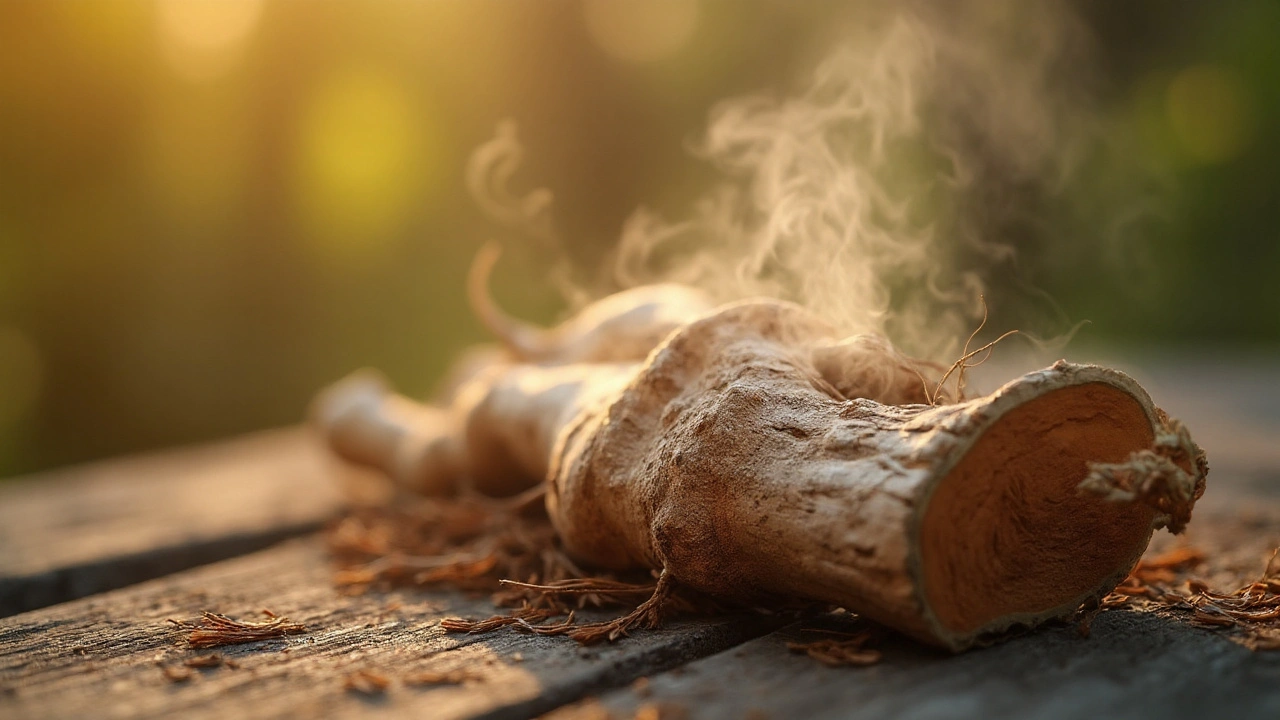Sep, 23 2025, 7 Comments
Senega: The Herbal Secret to Balanced Health & Respiratory Wellness
Discover how Senega, a traditional herbal root, can boost respiratory health, support immunity, and act as an adaptogen for a balanced lifestyle.
Read MoreIf you’re looking for a natural way to boost health, herbal supplements are a good place to start. They come from plants, so they often fit well with a balanced diet. The key is to know what each herb does, how much to take, and any safety concerns. Below you’ll find quick facts and practical tips you can use right away.
Herbs have been used for centuries, which means there’s a lot of real‑world experience behind them. Many contain vitamins, minerals, or compounds that support specific body functions. For example, some herbs help calm nerves, while others support digestion or metabolic balance. Because they are plant‑based, they usually have fewer synthetic chemicals than some manufactured pills. That doesn’t mean they’re risk‑free, but with the right knowledge you can pick the ones that match your goals.
Another plus is flexibility. You can find herbs in capsules, powders, teas, or even liquid extracts. This lets you choose the format that fits your lifestyle. If you dislike swallowing pills, a tea or a smoothie mix might work better. The variety also means you can combine a few herbs to target different areas, as long as you check for any interactions.
Kudzu (Pueraria lobata) – Kudzu root is famous for easing alcohol cravings and mild hot flashes. Research shows the isoflavones in kudzu can help balance hormones and support metabolism. A typical dose is 500 mg of standardized extract two to three times daily. Start with the lowest dose and see how you feel.
Chicory Root (Inulin) – Chicory’s inulin fiber acts as a prebiotic, feeding good gut bacteria. This can improve regularity, mineral absorption, and even blood sugar control. Most people start with 5 g of chicory root powder mixed into water or a smoothie, then increase to 10–15 g if tolerated. A little bloating is normal at first, but it usually fades.
Turkey Corn – This emerging supplement claims to boost metabolism and mental clarity. While studies are still limited, users report a subtle rise in energy after a 300 mg capsule taken with breakfast. If you try it, keep an eye on any stomach upset and adjust the dose accordingly.
Tamarix Dioica – Known for its antioxidant properties, Tamarix Dioica may support heart health and skin wellness. The recommended daily amount is 250 mg of powdered leaf extract, split into two doses. Pair it with a balanced diet for best results.
Royal Jelly – Produced by honeybees, royal jelly is rich in proteins and B‑vitamins. It’s often taken to improve energy and vitality. A common regimen is 500 mg of freeze‑dried royal jelly twice a day, preferably on an empty stomach. Some people notice a boost in stamina within a week.
When adding any new herb, start with the smallest effective dose. Track how you feel for a week before deciding to increase. If you’re pregnant, nursing, or on prescription meds, check with a healthcare professional first.
Overall, herbal supplements can be a simple, natural addition to your health toolkit. By choosing reputable brands, respecting dosing guidelines, and listening to your body, you can enjoy the benefits without unnecessary risk.
Ready to try one? Pick the herb that matches your current goal, follow the starter dose, and see how you feel. Small steps add up to bigger health wins.

Sep, 23 2025, 7 Comments
Discover how Senega, a traditional herbal root, can boost respiratory health, support immunity, and act as an adaptogen for a balanced lifestyle.
Read More
Sep, 22 2025, 17 Comments
Discover why Jamaican Dogwood deserves a place in your daily health routine, its science-backed benefits, how it compares to other herbal powerhouses, and practical tips for safe use.
Read More
Sep, 2 2025, 5 Comments
See how kudzu root may help you drink less, take the edge off mild hot flashes, and support metabolic balance-backed by research, clear dosing, and safety tips.
Read More
Aug, 26 2025, 5 Comments
Underrated but mighty: chicory inulin boosts gut bacteria, regularity, and mineral absorption. Learn benefits, safe dosing, and how to start-without the bloat.
Read More
Feb, 6 2025, 13 Comments
Turkey Corn, a once-overlooked plant, is making waves as a dietary supplement with significant health benefits. From boosting metabolism to enhancing mental clarity, this natural remedy is being adopted by health enthusiasts worldwide. This article explores its origins, health benefits, and practical ways to incorporate it into your daily routine. Discover the science behind its effectiveness and how it’s changing the lives of many. Uncover tips for ensuring you get the most out of this promising supplement.
Read More
Sep, 13 2024, 17 Comments
Tamarix Dioica, a powerful herbal supplement, offers various health benefits. This article explores its nutritional value, health benefits, and practical tips for incorporating it into your daily routine. By understanding its potential, you can make informed choices to enhance your wellness.
Read More
Aug, 4 2024, 6 Comments
Discover how royal jelly dietary supplements can enhance your energy and vitality. Explore the benefits, uses, and interesting facts about this natural powerhouse produced by honeybees. Learn practical tips for incorporating royal jelly into your daily routine to improve overall health and well-being.
Read More